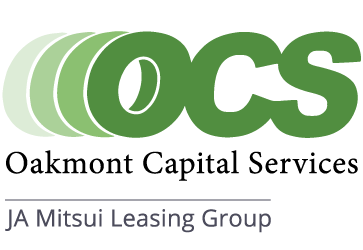Five Keys to Hiring and Keeping the Right Employees
As you are evaluating the candidate, the reverse is very much happening, especially in this current tight job market.
1. Establish the type of person you are hoping to find – level of experience, onsite or remote, management, experienced, or entry level, and other personality traits that you find successful candidates possess for your organization.
For many of us, hiring sometimes results from holding off on adding a person as long as possible, and then when we can’t hold out any longer, we quickly advertise and hire someone — anyone. Hiring the right employees should take time, and much of that time needs to be prior to even placing the Indeed ad or posting. Consider the position you are looking to add or fill — what level of experience is desired or required? More importantly, in my opinion, is considering your company culture and pace, and considering what qualities the qualified candidate would need to possess to fit right in. Should this employee come directly from college or with some related experience because you have a robust training ground and then there are no prior work habits to break? Or do you need someone with extensive experience so they can lead a group? If that’s the case, how have they led and what was the culture like at their former workplace? Also, how would you like them to lead and will the cultures blend well? Employees who work remotely or telecommute still need to fit into the culture of your business as well. Those employees have less direct personal interaction with employees in your office(s) but should understand and support the culture and the way you do business. In a culture where teamwork and creative collaboration are necessary, an independently-focused employee may not mesh well. How much time you have dictates this pre-hire process but taking the time to define what you are looking for in a future hire will greatly benefit you as you go to advertise and interview.
2. Advertise for jobs that bring the most qualified company candidates, perhaps not just for the job you are looking to fill.
Candidates looking for jobs may read the qualifications for a posting, but if they want to work for a company bad enough, they will apply for any open positions hoping to get an interview. I would argue that the process can work very well, both for an employer and for a candidate. Keep in mind, for most of us in our industry we aren’t hiring doctors or specifically licensed employees where there are obvious requirements. Placing an ad for credit will hopefully get you credit people, of course, some with experience and some without. Additionally, the same posting may also gather the want-to-be sales people who are hoping you give them a chance at credit, so they can get on the payroll. Some of the best success stories I have seen came from closely looking at resumes, sometimes without regard for the minimum qualifications for the advertised opening but reviewing for the those that might have the personality and aptitude to be a successful fit somewhere in your organization. Once you personally meet the applicants and can better gauge their cultural fit, there may very well be another opening they didn’t know about that you can snag them for. Finding the culture fit is sometimes a bigger part of the process as you can always train for the specifics of a position.
3. Let others meet the candidate, different styles and personalities bring out different qualities.
Who does your hiring makes a difference as well. If you are large enough to have an HR department or HR Manager, do they do all the hiring? I have worked with some talented HR personnel, but I believe that the leadership team and those with day-to-day experience in the running of the business should do the interviewing or at least meet the candidates before they are hired. As the leader of an office or a company, you should want to meet everyone you are paying to help build your operation, and albeit a time-consuming commitment, it will provide valuable insight. As time allows, I personally prefer to review and screen all resumes, as it’s an important task and also one that I enjoy. Alternatively, if you choose someone to do the screening, that person should have an open mind to welcome in as many qualified candidates as possible and with experience parameters you set. Interviews, to me, are very exciting and can be a renewed source of motivation just talking with potential candidates. These candidates come with energy and fresh ideas, some of which could be very beneficial. Additionally, if the leader has time to do the initial screening interview, that can be very beneficial as this is the spot where they can determine if the candidate first possesses the cultural fit, and then share them with potential departments for their opinions. Alternatively, if you are in a large shop and there just isn’t time, have someone do the initial interview, someone that will have more daily interaction with them and is experienced in interviewing and reading people. If they like the candidate, then a leader should meet them on the same day so they can confirm what others have determined. When in doubt, take even 5-10 minutes of your day to get an impression of a candidate, you might just notice a spark that others didn’t or further confirm a good decision, both of which can impact your business positively.
4. Ask about family, hobbies, etc., and get to know them just a little beyond their job qualifications.
Keeping an interview less formal can help bring out the true personality of a candidate. While it is important to ask the tough and skill-based questions, mixing in enough lighter questions helps to put a candidate at ease. I’ve heard about candidates going through power-trip interviews or those using fear tactics to set a tone, but neither are worth trying. Naturally, candidates are all nervous during interviews, it’s the interviewer’s job to put them at ease so both benefit from process. I believe in letting the interview flow along, while capitalizing on tidbits that come out and inquire more to allow the candidate’s true personality come out. For example, let’s say a candidate is talking about their background and says he could no longer work weekends because he started competing in a curling league, or maybe because his wife works weekends and he needs to watch their kids. Either is an opening to ask more about what he does for fun, while getting him to relax and show more of his true personality. The person who they truly are is the one that will be sitting in the chair you are hoping to fill, if they sign on; use interview questions to get to know that person. Beyond setting them at ease, you can learn what their passion in life is and that will likely clue you into what drives them, if they have a competitive side or not, etc. The extra 5-10 minutes you spend learning about them during their interview will let them know you do care about them as a person, and in a competitive market, might set you apart from others they may be interviewing with. Additionally, once they have been hired, make it a point to catch them in the hall later and check in with them about their personal hobbies and interests. This small act will remind them of the sincere concern you have for them as individuals. Providing a place of work where someone feels valued is a tremendous boost to morale and definitely influences retention.
5. Sell the benefits and why you enjoy the company you work for. They need to see your passion and commitment to the company they are looking to become part of.
It’s been said, “If you love what you do, you’ll never work a day in your life,” and what better way to attract and retain candidates than by showing them your passion? There is nothing more inspirational to a candidate than seeing someone who is passionate about what they do. As much as you are evaluating the candidate, the reverse is very much happening, especially in this current tight job market. Being a leader that exhibits energy and passion for what you do will help tilt the scales in your favor. Passion shines through and people follow that. I like to ask candidates what they are truly passionate about, and what motivates them to get up each day. Knowing what motivates them helps you manage that from a recognition or benefits aspect, but also to help them feel personally valued. The interview is also a great time to set some early expectations, such as discussing the level of communication your organization expects. Whatever you tell them better hold true in practice. If you tell them you support an open-door policy and open communication, then it needs to be truly that when they come to cash in.
In summary, everyone needs to develop their own personal way of hiring and managing employees, but there are some little things you can do that go a long way in building individual rapport. The more individual connections you make and keep, the better the overall company atmosphere becomes, full of trust, open communication, and an enjoyable work environment, all of which contribute to the bottom line of a successful business.
WHY CHOOSE US?
Better Rates and Flexible Terms
Oakmont Capital shatters the big bank rates, making us the go-to funding source for a wide range of customers.
Over 20 Years of Experience
Work with our team of experts and grow your business. Speak with our Certified Lease & Finance Professionals today to learn more.
24 Hour Turnaround
Our streamlined application process delivers credit decisions within hours, not days, maximizing your time and experience.

